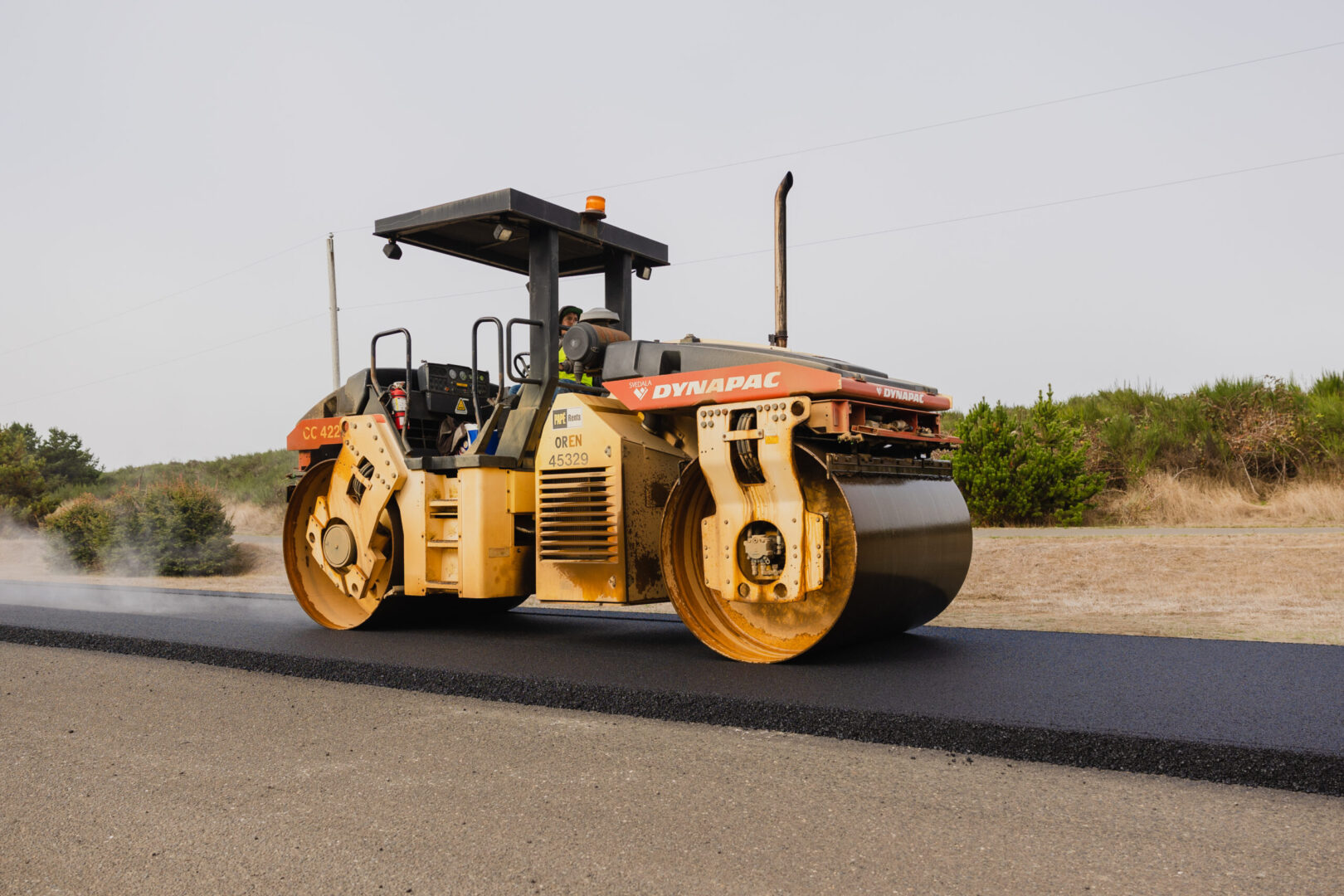Asphalt Paving Acworth GA: Comprehensive Paving Services for All Types of Surfaces
Understanding the Various Sorts Of Asphalt Paving Available Today
In the realm of construction and infrastructure, a thorough understanding of the different kinds of asphalt paving is vital for optimal project end results. From the robust Warm Mix Asphalt, created for high-traffic locations, to the ecologically mindful Porous Asphalt that facilitates water management, each type presents distinct benefits tailored to details requirements.

Hot Mix Asphalt
What makes warm mix asphalt a favored choice for road building and repair work? Hot mix asphalt (HMA) is preferred for its durability, flexibility, and performance under varying conditions. Made up of a blend of accumulations and fluid asphalt concrete, HMA is created at heats, typically in between 300 ° F and 350 ° F (asphalt paving acworth ga). This high-temperature application allows for optimum bonding and compaction, leading to a smooth, durable surface area that can endure rush hour tons and unfavorable weather condition.
HMA's ability to be tailored to specific project demands is an additional considerable advantage. Different gradations and formulations can be made use of to enhance residential properties such as flexibility, resistance to deformation, and durability. Additionally, hot mix asphalt can be rapidly mounted and available to traffic, decreasing disruption throughout building and construction.
Environmental considerations also play a role in the choice for HMA. The material is recyclable, and reclaimed asphalt sidewalk (RAP) can be reused, promoting sustainability in road construction practices. On the whole, warm mix asphalt sticks out as a dependable option, effectively providing a long-lasting, high-performance surface that satisfies the needs of modern-day facilities.
Cold Mix Asphalt
Cold mix asphalt is a functional choice to warm mix asphalt, specifically suited for specific applications such as patching and surface area treatments. This kind of asphalt is generated at ambient temperature levels, enabling for less complicated handling and application without the demand for comprehensive home heating equipment.
Normally composed of asphalt emulsions or cutbacks, chilly mix asphalt can be combined on-site or bought pre-mixed. Its residential or commercial properties allow it to bind well with existing sidewalk, making it an efficient remedy for repairing fractures, cracks, and various other surface area problems. It can be applied in a variety of weather problems, offering a sensible alternative for year-round maintenance.

Nonetheless, while cold mix asphalt is excellent for momentary repairs, it might not provide the exact same long life or toughness as warm mix asphalt under heavy website traffic conditions. It is ideal utilized for low-traffic locations or as a momentary remedy till more irreversible fixings can be performed.
Warm Mix Asphalt
While warm mix asphalt has actually long been the criterion for road building, cozy mix asphalt (WMA) has become a cutting-edge option that stabilizes performance with ecological considerations. WMA is generated at considerably reduced temperatures-- normally between 215 ° F and 275 ° F-- compared to hot mix asphalt, which is heated up to around 300 ° F. This reduction in temperature level not only reduces power usage however likewise lowers greenhouse gas exhausts during manufacturing.
The technology behind WMA includes making use of additives or techniques that allow much better workability at reduced temperatures. These can include chemical ingredients, foaming processes, or a combination of both. Because of this, WMA keeps the needed residential properties for resilience and performance while supplying a more eco-friendly alternative.

Porous Asphalt
Porous asphalt represents a forward-thinking strategy in sidewalk design, focusing on both functionality and ecological sustainability. This cutting-edge product is particularly crafted to allow water to permeate with its surface area, effectively reducing runoff and advertising groundwater recharge. Because of this, permeable asphalt is an exceptional option for areas susceptible to flooding or where stormwater monitoring is important.
The composition of porous asphalt varies from traditional asphalt, featuring a greater portion of spaces that facilitate drainage. This property not just reduces surface water buildup yet likewise assists alleviate problems like hydroplaning and improves automobile grip during damp conditions. asphalt paving acworth ga. In addition, permeable asphalt can contribute to metropolitan warmth island decrease, as it permits higher dissipation and cooling results in urban atmospheres
In regards to setup, permeable asphalt calls for mindful consideration of underlying drain systems to guarantee optimum performance. Upkeep generally entails regular inspections and cleansing to avoid obstructing from debris, which can harm its leaks in the structure. On the whole, porous asphalt works as a lasting paving remedy that lines up with contemporary ecological objectives, making it an increasingly popular selection for both private and public jobs.
Rubberized Asphalt
Rubberized asphalt is an advanced paving material that integrates recycled rubber, commonly sourced from scrap tires, right into the asphalt mix. This ingenious method not just improves the efficiency of conventional asphalt yet also advertises environmental sustainability by reusing waste products. The enhancement of rubber boosts the adaptability and longevity of the sidewalk, making it immune to breaking and deformation under varying temperature level conditions.
Among the substantial benefits of rubberized asphalt is its ability to lower sound pollution. The rubber fragments take in sound, resulting in quieter roadways, which is particularly useful in urban areas. Furthermore, this sort of asphalt supplies boosted skid index resistance, improving safety and security for lorries.
Rubberized asphalt likewise adds to prolonging the life expectancy of roadway surface areas, leading to minimized maintenance expenses with time. This long life is particularly beneficial for high-traffic locations where wear and tear are accelerated. In addition, its resistance to wetness infiltration assists minimize the threat of water damages, additionally boosting longevity.
Final Thought
In recap, the range of asphalt paving kinds-- Hot Mix Asphalt, Cold Mix Asphalt, Cozy Mix Asphalt, Porous Asphalt, and Rubberized Asphalt-- each satisfy distinct functions that deal with go diverse building and construction and maintenance demands. These options not just enhance road top quality but likewise contribute to sustainability through lowered power intake and improved water administration. Understanding these differences is vital for choosing the appropriate asphalt type, eventually ensuring effective and efficient leading remedies in various settings.
From the durable Hot Mix Asphalt, designed for high-traffic areas, to the environmentally conscious Porous Asphalt that facilitates water monitoring, each kind offers unique advantages customized to details needs.Typically made up of asphalt solutions or lowerings, cold mix asphalt can be combined on-site or acquired pre-mixed.While hot mix asphalt has long been the standard for roadway building, warm mix asphalt (WMA) has actually emerged as a cutting-edge option that stabilizes efficiency with ecological factors to consider.Rubberized asphalt is a sophisticated paving product that includes recycled rubber, typically sourced from scrap tires, into the asphalt mix.In recap, the variety of asphalt paving kinds-- Warm Mix Asphalt, Cold Mix Asphalt, Warm Mix Asphalt, Porous Asphalt, and Rubberized Asphalt-- each meet distinct features that cater to diverse building and construction and maintenance needs.